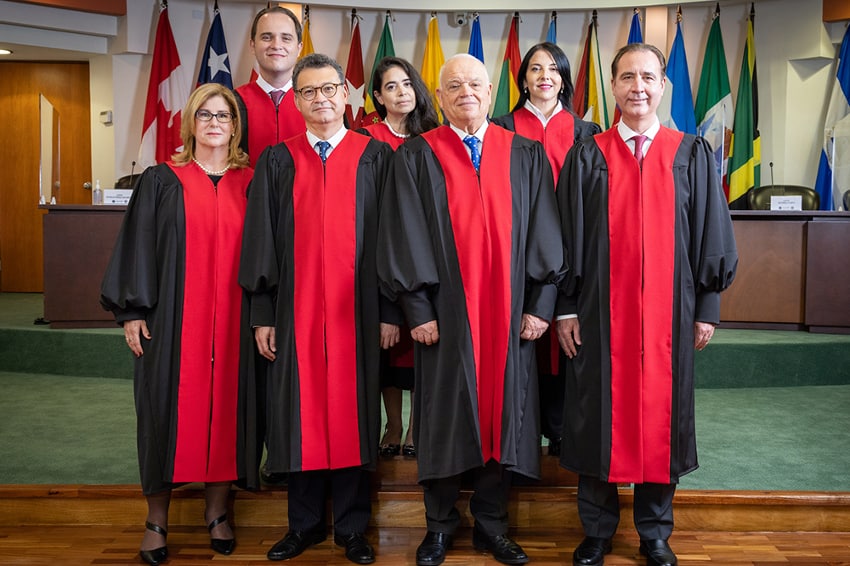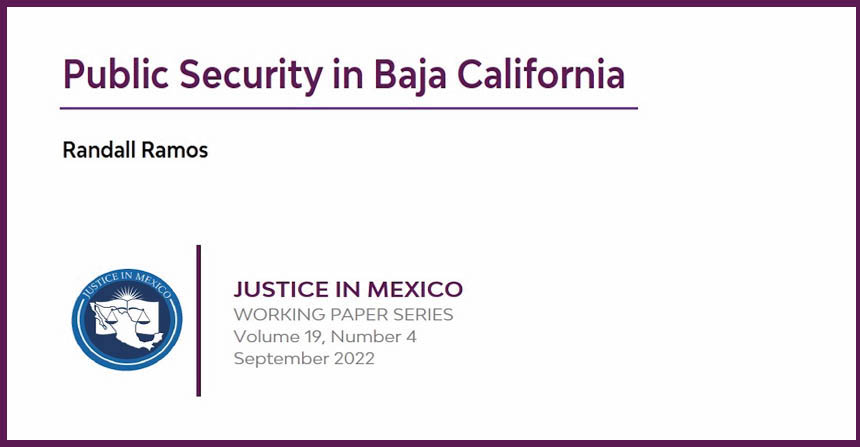
10/10/17- (written by Lucy Clement La Rosa) In October of this year, Nexos, a political magazine based in Mexico City, featured an article co-authored by Justice in Mexico Director and Program Coordinator, David Shirk and Octavio Rodríguez, that examines rule of law and judicial reform in Mexico. The article, titled “El Justiciabarómetro Mexicano” (The Mexican Justice Barometer), highlights the Justice in Mexico’s Justiciabarómetro project, a quantitative research initiative to gauge the current levels of comprehensive judicial reform and the professional attitudes of judicial operators throughout the Mexican criminal justice system, including police, public defenders and judges.
The article introduces the background of the Justiciabarómetro project, which began in 2009 and was first published as research study in 2010. The project was initiated at a critical moment in Mexico’s democratic development in order to provide much needed analysis of judicial operators and judicial reform in Mexico. Just one year before, Mexico’s ruling president Enrique Peña Nieto had launched an ambitious judicial reform, aimed at improving the transparency of the criminal justice system. Under the agenda of New Criminal Justice System (Nuevo Sistema de Justicia Penal, NSJP), the reforms targeted various operators across multiple judicial sectors, including police officers, prosecutors, public defenders, the Ministry of the Public, the courts, and the prison system. The reforms introduced new judicial procedures and standards with the intent of promoting greater access to justice (for defendants and victims alike) and improving the efficiency of judicial operators.
The 2008 reforms were implemented following a general outcry over the dysfunctionality of Mexico’s justice system, which was fraught with impunity, corruption, legal misconduct and a general lack of access to justice for defendants and victims. In fact, Mexico’s society was so disenfranchised by the rate of impunity and level of uninvestigated crimes that often crimes went unreported. Moreover, crimes that were reported were often protracted by trial delays, a reliance on eye witness testimony and general negligence.
The first Justiciabarómetro published in 2010 was a survey of judicial operators across nine Mexican states with a response rate of 24%. The survey, composed of over 120 questions, focused on the demographic and professional profiles of judicial operators as well as their personal perspectives on various topics; including: the effectiveness of the judicial sector, the implementation of the new judicial sector and the attitude towards persistent problems of corruption, organized crime and violence. The study generated useful indicators as the early development of Mexico’s judicial reform, useful not only for academic purposes, but also for public policy initiatives.
The Nexos article specifically highlights the most recent 2016 Justiciabarómetro publication, which covered 11 Mexican states with a response rate of 56%. In comparison to the baseline of the first Justiciabarómetro study, the 2016 study discovered several positive changes in the attitudes of the surveyed judicial operators towards judicial reform. For example, about 80% of the survey participants believe that the NSJP will reduce institutional corruption and about 95% of judicial operators prefer the new oral, adversarial trial procedures over the antiquated, written procedures. The 2016 study also identifies several persisting challenges within Mexico’s judicial system that beg to be address for the sake of the success and continuity of the judicial reform process.
Overall, the Nexos article underscores the objectives and important findings of the latest Justiciabarómetro study with relation to Mexico’s judicial reform and judicial operators. The objective of Justice in Mexico’s ongoing Justiciabarómetro project is not only to fill the gap in the literature related to judicial operators, but also to provide routine evaluation of the Mexican judicial system. In this manner, the Justiciabarómetro can identify progressive development and remaining challenges within Mexico’s comprehensive judicial reform and judicial personnel. It is the overarching goal of our organization to accentuate the positive impact of the relatively new oral, adversarial system in Mexico’s rule of law and subsequently reinforce the continuous development of Mexico’s judicial system.
Please see below for a link to the Nexos feature (Spanish); there is also a separate link to the translated Nexos article (English).
Nexos (Spanish): Nexos Feature
Translation (English): Nexos Translation




